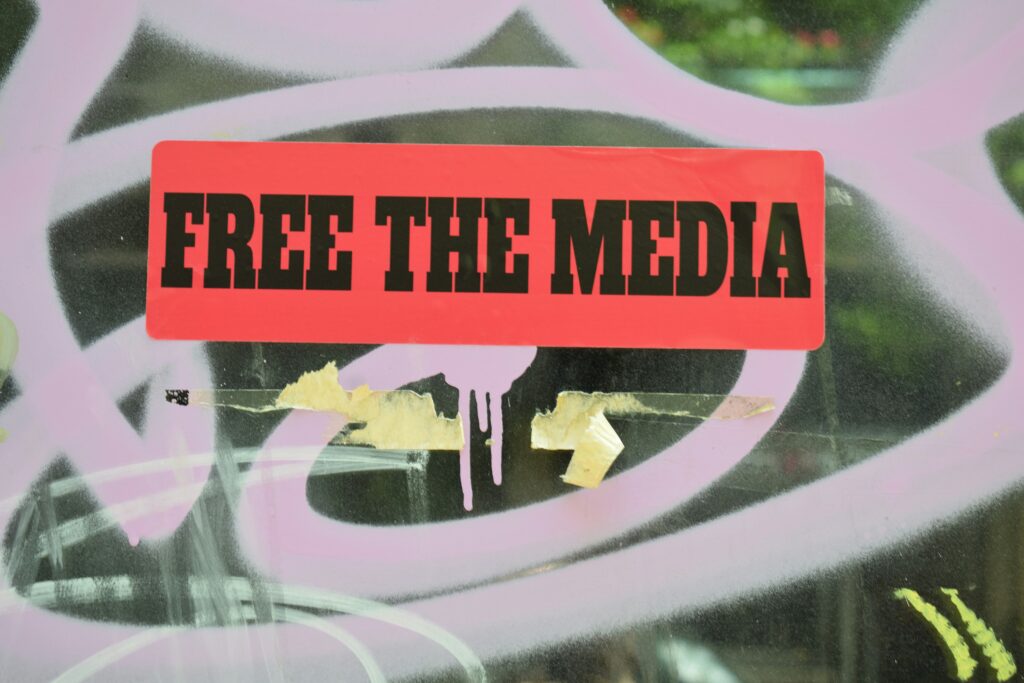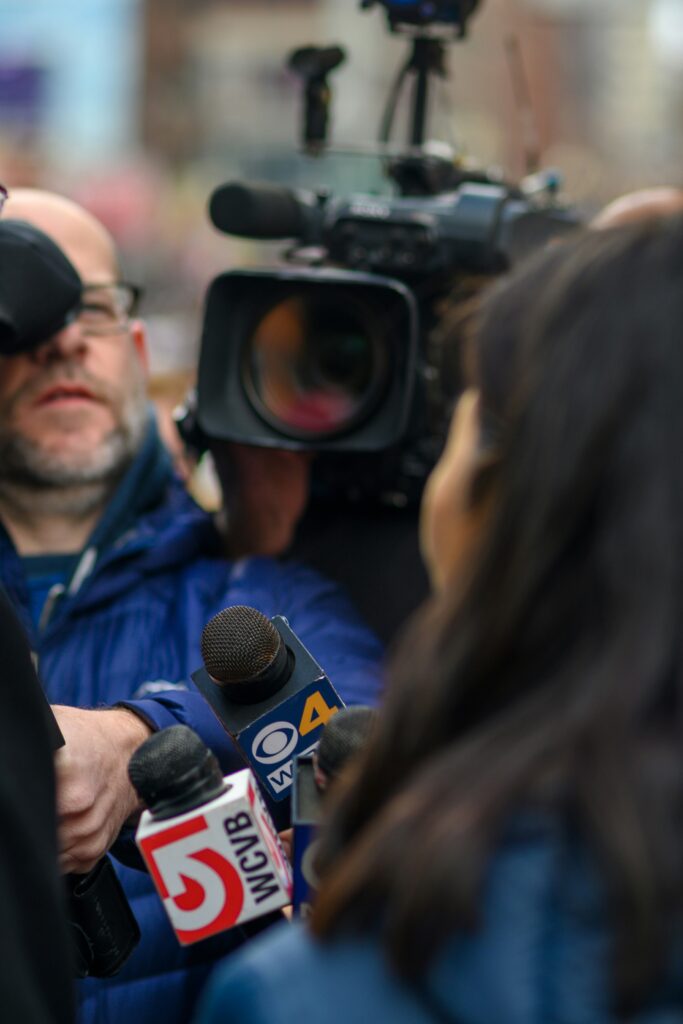US TV hosts back Kimmel
After ABC suspended Jimmy Kimmel Live! over the host’s comments about the killing of conservative activist Charlie Kirk, late-night heavyweights closed ranks around Kimmel and blasted what they called a chilling campaign against media critics—just as President Donald Trump suggested hostile networks could have their broadcast licenses “taken away.” The clash has become a high-stakes First Amendment brawl playing out on America’s biggest stages—network television, the Federal Communications Commission, corporate boardrooms, and the White House briefing rope line. People.com+2Reuters+2
What happened—fast
- ABC pulls Kimmel “indefinitely” after a monologue in which he said the “MAGA gang” tried to spin reactions to Kirk’s killing; the move followed public pressure from FCC chair Brendan Carr and affiliate preemptions. People.com+1
- Nexstar, the largest owner of ABC affiliates, said it would not air Kimmel “for the foreseeable future,” calling his remarks “offensive and insensitive”—while it awaits FCC approval for a major deal. Los Angeles Times
- Trump complained mainstream networks are overwhelmingly negative and mused their licenses might be “taken away,” amplifying the fear that government threats are shaping editorial decisions. The Hollywood Reporter
- US TV hosts back Kimmel on-air: Stephen Colbert called the removal “blatant censorship,” Seth Meyers framed it as a free-speech test, Jon Stewart and Jimmy Fallon lampooned the idea of enforced praise, and David Letterman warned of “managed media.” People.com+1
How a monologue became a constitutional stress test
Kimmel’s Monday monologue took aim at efforts to politicize the killing of Charlie Kirk; conservative critics, and then FCC chair Brendan Carr, denounced the segment as misleading and “sick.” Within hours, Nexstar preempted the show across its ABC stations; soon after, ABC said Kimmel’s program would be pulled indefinitely. Carr suggested the FCC could investigate and that affiliates could face fines or even license jeopardy if a pattern of “distorted” content emerged. The timing—affiliate fears, a pending Nexstar deal, and a cabinet-level drumbeat from the administration—made many in TV see a regulatory anvil hovering over editorial choices. Reuters+2Variety+2
Civil-liberties groups and media lawyers underscored that while the FCC regulates broadcast indecency and technical compliance, it cannot lawfully police political satire or viewpoint—and overt threats to yank licenses for critical speech run headlong into longstanding First Amendment doctrine. That’s why the phrase US TV hosts back Kimmel isn’t just celebrity solidarity; it’s also a collective warning about government actors using the specter of licensing to chill speech. FIRE+1

The on-air pushback: jokes with stakes
Stephen Colbert opened with: “We are all Jimmy Kimmel,” blasting the removal as a “blatant assault on freedom of speech,” and tying it to a broader campaign against media critics. Colbert, whose own show ends in May, used his freer runway to suggest corporate fear of federal decisions was part of the backdrop. People.com
Seth Meyers called it a “pivotal” moment, then parodied forced fealty—“I’ve always admired Mr Trump”—before resuming his argument that the First Amendment’s primacy is precisely to protect uncomfortable speech. Jimmy Fallon delivered a supportive monologue that was suddenly dubbed by a voiceover praising Trump’s looks, mocking the idea of compelled compliments. Jon Stewart went further, staging a faux “government-approved” Daily Show, praising the “perfectly-tinted Trump” in a gag about obedience. David Letterman told a New York audience the situation looked like “managed media.” Together, those bits gave comic form to a serious point: US TV hosts back Kimmel because they believe they may be next. The Guardian
The affiliate squeeze and the merger clock
Nexstar’s statement accused Kimmel of insensitivity “at a critical time,” language echoed by other station groups. But media reporters noted the context: Nexstar awaits FCC blessing for a multibillion-dollar acquisition, exactly the kind of moment when licensees are hypersensitive to the Commission’s signals—especially when the chair has just threatened action. That link—regulatory leverage meeting programming decisions—was seized on by Colbert and others. Los Angeles Times+1
In parallel, Variety, Reuters, the LA Times and others chronicled Carr’s public prodding and the cascade that followed: Nexstar preemption, similar moves or warnings by other groups, and ABC’s indefinite pull. US TV hosts back Kimmel partly because they view that sequence as cause-and-effect—and a blueprint for future pressure campaigns. Reuters+2Variety+2

What Trump said—and why it matters for licensing
Asked about hostile late-night shows, Trump replied that “they are licensed,” and mused that maybe those licenses should be “taken away.” In isolation, presidents gripe about media all the time; in combination with an FCC chair suggesting investigations, industry lawyers call it a red flag. The Hollywood Reporter noted flatly: attacking a broadcaster’s license over content is illegal—but political pressure can still move corporate risk-calculators. That gap between law and leverage is where the fight now lives. The Hollywood Reporter
Is this censorship—or corporate discretion?
ABC and its affiliates have the legal right to choose what they broadcast. What elevates this beyond routine standards decisions is the appearance—and for many critics, the reality—of state pressure. When the government hints at punishment for speech, and licensees alter programming while merger decisions hang in the balance, courts have called that a potential First Amendment problem (the “unconstitutional conditions” and “retaliation” lines of cases). That’s why US TV hosts back Kimmel by framing the suspension as censorship: not because ABC lacks discretion, but because discretion exercised in the shadow of government threats can be constitutionally tainted. (That argument is already surfacing in letters from House Democrats to the FCC demanding answers.) Oversight Democrats
The free-speech split on the right
It’s not unanimous in late night. Fox News’s Greg Gutfeld said he wasn’t upset, arguing that Kimmel’s defenders had long tried to muzzle conservative outlets and that network TV has content limits. Piers Morgan labeled Kimmel’s words needlessly provocative and asked why he should be treated as a free-speech martyr. Those counterpoints resonate with conservatives who saw Kimmel’s monologue as mischaracterizing the suspect’s politics and stoking division. The polarization guarantees this saga plays differently on opposite sides of the dial. (Still, license threats from government actors worry many First Amendment conservatives as much as liberals.) The Guardian

What Kimmel actually said—and the Kirk context
Kimmel’s monologue framed parts of the online right as trying to “score political points” off Kirk’s killing, likened Trump’s response to a child mourning a goldfish, and suggested the “MAGA gang” sought to deflect blame. Brendan Carr called those lines “sick,” accused Kimmel of misleading the public, and publicly pushed affiliates to act. Newsrooms have emphasized that the suspect’s precise motive remains unclear, even as Utah’s governor said the shooter was “indoctrinated by leftist ideology.” That factual thicket fueled the blowback. None of it, free-speech advocates argue, justifies licensing threats. Reuters
The hosts’ argument: this isn’t about liking Kimmel
Colbert, Meyers, Stewart, Fallon and Letterman have all criticized Trump for years; critics can chalk their defense up to tribal loyalty. But their framing was broader: if a monologue can trigger regulatory saber-rattling and corporate capitulation today, what does that mean for the next joke, the next investigative package, the next editorial? US TV hosts back Kimmel not only because he’s a colleague, but because the precedent would chill everyone who works under a broadcast license. People.com+1

Industry blowback: not just comedians
The solidarity isn’t confined to hosts. Lost co-creator Damon Lindelof said he wouldn’t work with ABC/Disney unless Kimmel is reinstated; other showrunners and media figures warned Disney was teaching politicians how to muscle programming via regulators. (Disney hasn’t commented beyond confirming the suspension.) US TV hosts back Kimmel amid a larger coalition of creatives and journalists who see a test of corporate spine. EW.com
The law, in plain English
- The FCC can’t punish a broadcaster for political viewpoints or satire; it can act on indecency in limited windows, technical violations, or fraud.
- License revocation for disfavored speech would almost certainly fail in court—but the process of defending a license is slow and costly, which is why threats can be effective without formal action.
- Government officials cannot leverage regulatory power to retaliate against protected speech; even “suggestions” can trigger constitutional scrutiny if reasonably understood as threats.
That’s the legal spine beneath the headline: US TV hosts back Kimmel because they believe government intimidation is being normalized, even if no license is actually pulled. The Hollywood Reporter+1
The political calculus for everyone involved
- The White House energizes its base by forcing cultural flashpoints; even failed legal threats can succeed politically.
- The FCC chair projects toughness to an administration that prizes it, at the cost of litigation risk and reputational blowback.
- Nexstar and peers minimize approval risk for pending deals—but appear to bend to pressure, which may haunt future newsroom decisions. Los Angeles Times
- Disney/ABC aims to control damage but invites charges of capitulation.
- Rival hosts gain moral capital by defending the principle—while reminding viewers their shows still speak freely. The Guardian
What to watch next (very near-term)
- Hearings & letters. House Democrats have already asked Carr to explain his remarks and potential actions; expect oversight requests and maybe subpoenas. Oversight Democrats
- Affiliate dominoes. If Sinclair and other groups keep Kimmel off air—even if ABC reinstates him—the practical effect is still a blackout across much of the country. Reuters
- Labor & talent pressure. If more showrunners and actors echo Lindelof’s boycott threat, Disney faces a studio-side revolt over newsroom independence. EW.com
- Litigation risk. A broadcaster could sue over retaliation; even a threatened petition to deny license renewals would invite a louder First Amendment fight. The Hollywood Reporter
Why this late-night skirmish matters to everyone else
Broadcast licenses are scarce public resources that depend on FCC approval. If licensees believe edgy commentary invites government pain, expect self-censorship far beyond comedy: local watchdog reporting, hard-hitting editorials, even investigative stories about the administration’s allies. That’s the slippery part of the slope. The phrase US TV hosts back Kimmel captures more than camaraderie; it’s a signal flare about how easily a regulatory climate can constrict what audiences hear.
The counter-argument—and the rebuttal
Counter-argument: Kimmel’s remarks were reckless and inaccurate, affiliates serve local communities, and ABC has every right to pull a show that offends viewers.
Rebuttal: Affiliates can indeed program as they wish; the constitutional line is crossed when state officials create or exploit that offense to threaten licensure. Viewers can change channels; governments cannot weaponize licenses to punish speech.
The culture-war metagame
Trump has long cast late-night hosts as partisan enemies. To supporters, going after Kimmel and celebrating Colbert’s cancellation is overdue comeuppance. To critics, it’s an escalation from rhetoric to regulatory pressure. Either way, the spectacle is the point: US TV hosts back Kimmel becomes another proxy fight defining the 2026 campaign narrative—who gets to speak, who gets to laugh, and who gets to decide.

Bottom line
The Kimmel saga is a referendum on whether America still expects its leaders—and its regulators—to live with satire, criticism, and uncomfortable monologues. If a single late-night joke can be followed by threats to “take away” licenses, then every producer starts gaming out the next punchline against the next petition to deny. That’s why US TV hosts back Kimmel so loudly: they’re not only defending a colleague; they’re defending their own future punchlines—and, more to the point, the public’s right to hear them.
Cited sources & further reading: People (Colbert reaction); Reuters (affiliate preemptions, Carr’s threats, motive still unclear); LA Times (Nexstar statement & FCC context); Variety (Carr’s remarks); Guardian roundup (hosts’ on-air responses); Hollywood Reporter (why license threats clash with the First Amendment); Entertainment Weekly (industry backlash). EW.com+6People.com+6Reuters+6



